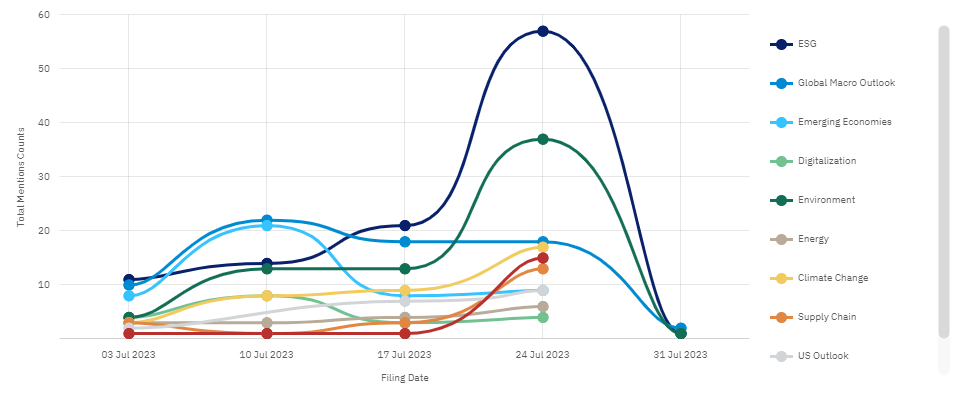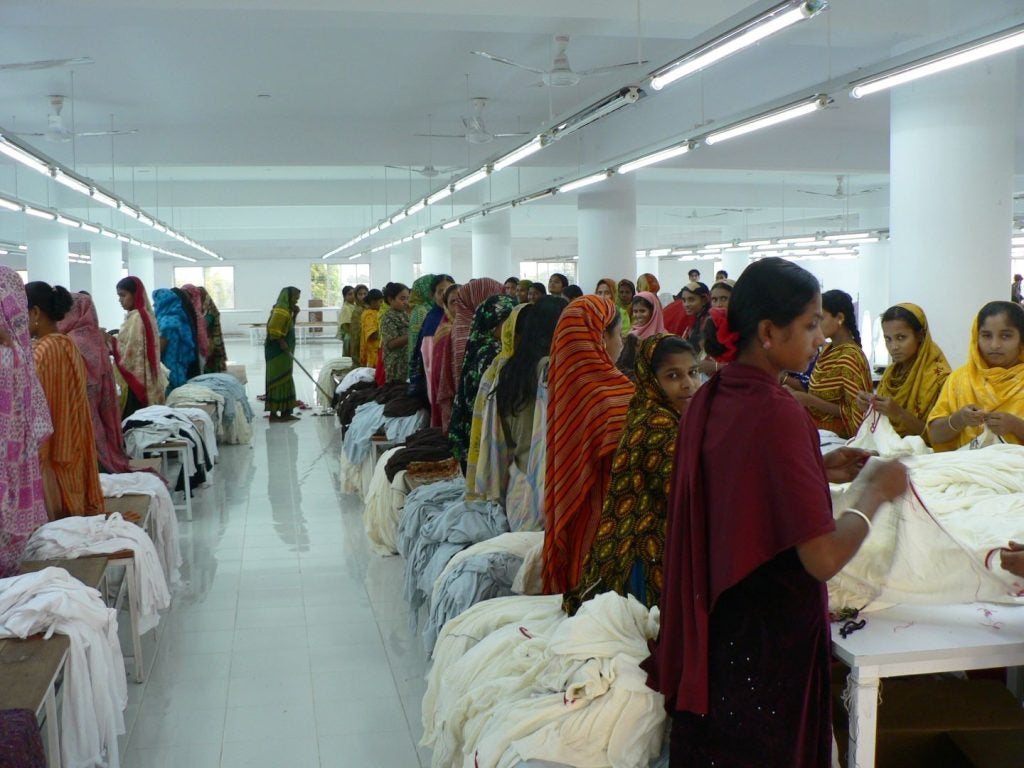
Environmental, Social and Governance (ESG) is a key focus for apparel companies, according to GlobalData’s analytics with July’s data demonstrating that fashion companies are keen to share their dedication to it in terms of both resources and strategies.
ESG theme dominates apparel company filings
Governments around the world are starting to demand accountability from every stratum of the apparel industry so it is not surprising the ESG theme continued to dominate apparel company filings in July this year over and above everything else, according to GlobalData’s company filings database.

Source: GlobalData
The database shows the ESG theme mentions totalled 57 alone on 24 July with the environment theme trailing closely behind in second place.
For the overall month of July the Global Macro Outlook theme, which taps into the impact of the global economy was the second most reported theme in fashion company filings.
How well do you really know your competitors?
Access the most comprehensive Company Profiles on the market, powered by GlobalData. Save hours of research. Gain competitive edge.

Thank you!
Your download email will arrive shortly
Not ready to buy yet? Download a free sample
We are confident about the unique quality of our Company Profiles. However, we want you to make the most beneficial decision for your business, so we offer a free sample that you can download by submitting the below form
By GlobalDataHow is the apparel sector dealing with ESG?
GlobalData’s ESG (Environmental, Social and Governance) Sentiment Polls for Q2 2023 suggest that both legislation and government pressure are the main reasons for apparel companies creating an ESG performance plan. This in turn highlights the demand for more transparency by the government and consumers alike in the apparel sector.
JAAF explained these companies are not only transforming their operations in Sri Lanka but also fostering a culture of sustainability within their communities.
The organisations collaborate with local businesses on beach clean-ups, ocean conservation, skill development, vocational training, and economic relief initiatives. JAAF pointed out that by embracing community feedback and insights, the sector can continuously refine its circular production systems towards zero-waste goals.
In Bangladesh, the Bangladesh Garment Manufacturers and Exporters Association (BGMEA) has signed a memorandum of understanding (MoU) with NGO Solidaridad Network Asia with the aim of combining efforts to create a sustainable and green apparel sector.
This collaboration aims to combine efforts on worker wellbeing and reskilling; enhancing productivity, building a digital platform for sustainability reporting as well as achieving ESG standards and international corporate due diligence.
In an exclusive interview with Just Style two months ago, Laudes Foundation’s director of programmes Amol Mehra emphasised the need for joint commitment to take industry-level action.
Our signals coverage is powered by GlobalData’s Thematic Engine, which tags millions of data items across six alternative datasets — patents, jobs, deals, company filings, social media mentions and news — to themes, sectors and companies. These signals enhance our predictive capabilities, helping us to identify the most disruptive threats across each of the sectors we cover and the companies best placed to succeed.








